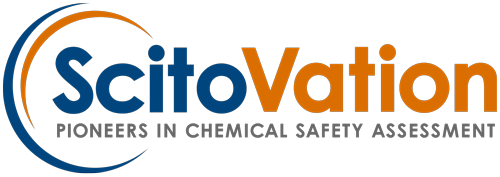DURHAM, N.C. (PRWEB) May 24, 2023
ScitoVation is the recipient of the National Institute of Environmental Health Science (NIEHS) Small Business Innovation Research (SBIR) Phase II award of $1.8 Million that is granted over two years in $900,000 increments. The SBIR program is a highly competitive program that encourages domestic small businesses to engage in Federal Research/Research and Development (R/R&D) with the potential for commercialization; enabling small businesses to explore their technological potential and provide the incentive to profit from its commercialization.
Leslie Recio, PhD, ScitoVation’s Chief Scientific Officer, explains the focus of this SBIR Phase II application: “We will develop a New Approach Methodology (NAM) combining human cells and game changing technology developed by TwinStrand Biosciences referred to as error-corrected next generation sequencing (EcNGS) as in vitro alternatives to current rodent cell mutagenicity assessments and as an in vitro alternative to rodent mutation assays. The lack of a regulatory human cell mutagenicity assay is a significant data gap in genetic toxicology risk assessment.”
ScitoVation plans to replace fifty-year-old clonal selection techniques to assess mutation in mammalian cells by using error-corrected next generation sequencing (EcNGS) to quantify mutations in human TK6 cell and in proliferation induced HepaRG™ cells in two specific aims. Completion of this Phase II SBIR will produce two human cell-based mutation assays that can be used as a follow up to bacterial mutation assays and as a NAM to reduce reliance on current in vivo gene mutation assays in rodents. These assays will be a cornerstone of ScitoVation’s NAM based vision for next generation genotoxicity assessment using human relevant cell-based models and dosimetry for human safety and risk assessments.
Jean Orelien, DrPH, MStat, CEO ScitoVation, is pleased to receive the award. “As a small company, this award supports our scientists performing cutting edge research that fills a data gap and provides better outcomes for the risk assessment community by relying less on animals.”
The funding officially starts May 23, 2023.
For more information, please contact Dr. Les Recio lrecio@scitovation.com
Research reported in this publication was supported by the National Institute Of Environmental Health Sciences of the National Institutes of Health under Award Number R44ES035336. The content is solely the responsibility of the authors and does not necessarily represent the official views of the National Institutes of Health.
